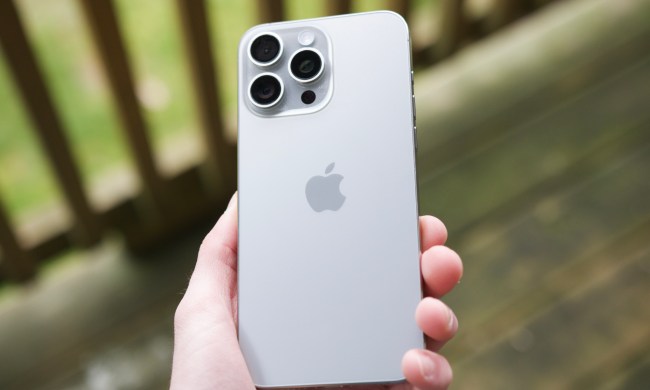Here’s how your Android phone could help stop your motion sickness (original) (raw)
![]()
Joe Maring / Digital Trends
Motion sickness — also called kinetosis — is a common problem. In fact, as many as one in three people have felt sick while in a vehicle. For those who suffer from it, reading in the car is practically impossible.
Apple introduced a feature that helps those prone to motion sickness use their phones without the accompanying nausea. Now, Google is working on a similar feature for Android phones.
According to Android Authority, the “Motion Cues” feature exists within the Google Play Store beta. The team discovered the feature in the Google Play Services v24.29.32 beta and was able to activate it. The way Motion Cues works is by displaying rows of animated dots onscreen that accompany the movement of the vehicle. It won’t completely cure motion sickness, but it should alleviate the worst of the symptoms. Just don’t load up Tolstoy on your Kindle if you have a long road trip.
Please enable Javascript to view this content
Motion Cues has an option to automatically enable it while driving, but you can also easily turn it off and off through a Quick Settings option. However, depending on how sensitive you are to motion, you might want to leave it enabled all the time. You can see it in action in the video below.
Google Play Services - Motion Cues feature demo
There is no word on when, or even if, this feature will see a full release. When features like this are discovered in the depths of code, and especially when they’re this far along, it usually indicates an impending release — but there are no guarantees. It’s best to acknowledge this as a useful, interesting function that may or may not reach the end user.
Motion sickness has been the focus of quite a bit of research in the last decade. With the Apple Vision Pro made to be less likely to trigger simulator sickness and other advances, science has made a lot of strides toward better accessibility.

Patrick Hearn writes about smart home technology like Amazon Alexa, Google Assistant, smart light bulbs, and more. If it's a…
It just got easier to protect your Android phone from thieves

With the release of Android 15 on Pixel devices, Google has introduced several new privacy and security enhancements. Among the notable additions are the improved theft protection features that are designed to make it harder for thieves to access your data. Initially, it was a bit difficult to find these settings. However, as Android Authority first noted, that's about to change.
When Android 15 launched, to find the theft protection menu on devices running Android 15, you had to follow these steps:
Apple just launched the iOS 18.1 public beta. Here’s how it’ll change your iPhone

This week is quickly shaping up to be a huge one for Apple fans. On Monday, Apple officially released iOS 18, watchOS 11, and macOS 15 to the general public. Tomorrow, regular sales begin for the new iPhone 16, iPhone 16 Pro, and Apple Watch Series 10. As if that weren't enough, Apple is now rolling out its first public betas with Apple Intelligence features.
Starting today, September 19, the public betas for iOS 18.1, iPadOS 18.1, and macOS 15.1 are available for anyone to download. The main draw to these public betas is that they all include Apple Intelligence features, which were previously locked to the developer betas for these software versions.
iOS 18 gives your iPhone a super-handy charging feature. Here’s how it works

Now that iOS 18 is rolling out, we're finding new features that are even more exciting than some of the larger-scale changes -- like a new setting that alerts you if you're using a slow charger on your iPhone.
If you're anything like me, you probably have a lot of old charging cables and bricks around the house. You might not realize that some of those are dated and aren't capable of supporting fast charging, especially if you tend to power your phone up in the evenings while you sleep.